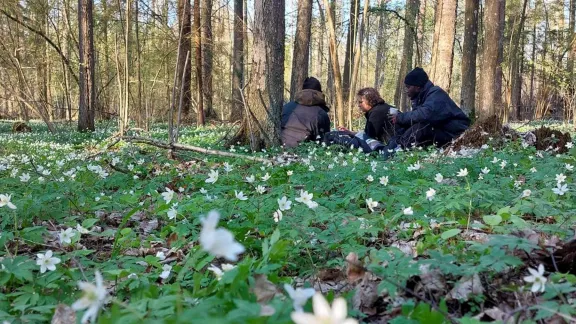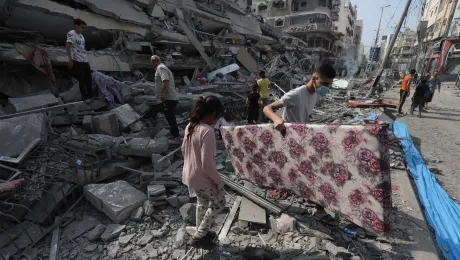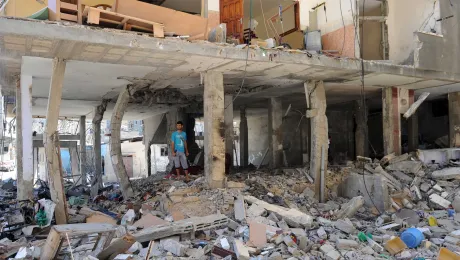
Marianna, anthropologist and psychologist, associate of Grupa Granica social movement. Photo: Private
Living as Neighbours: Marianna, anthropologist and psychologist, associate of Grupa Granica social movement
(LWI) - Bialowieza forest, on the border between Poland and Belarus, is a UNESCO World Heritage Site, one of the last remaining parts of a giant primeval forest that once stretched across the European continent. In 2018, Marianna, a trained psychologist and anthropologist, moved there from Warsaw, with her husband and two children, in search of ‘a slow simple life.”
For the first three years, the family lived that dream, growing vegetables, raising chickens and foraging for mushrooms or wild berries in the forest. The children went to school in a nearby village, while the parents did odd jobs for neighbors and made many new friends. But in 2021, everything changed as people seeking asylum in Europe started arriving in large numbers, many of them taken to the border after their arrival in the Belarussian capital of Minsk.
Suddenly, this peaceful paradise was turned into a militarized zone as Polish guards began pushing migrants and refugees back across the border. Marianna found herself caught up in the work to save lives and support those being denied even their most basic human rights. Listen to her story in episode seven of ‘Living as Neighbours’, a podcast produced by the Lutheran World Federation and A World of Neighbours.
Pushbacks across the border
“People started arriving in the villages at first,” Marianna recalls. They had flown to Minsk with fake visas and were told they would be safe in Europe. They didn’t know that Polish people would try to catch them.” As the numbers grew, Polish authorities instructed border guards to push people back across into Belarus and told local residents to report any new arrivals to the police. “They said it was illegal to help them, that they were terrorists, rapists and thieves,” Marianna says.
In the summer of 2021, as the story made news headlines, many volunteers and non-governmental organizations arrived to coordinate humanitarian aid and support for those hiding in the forest. Among the first responders were members of Grupa Granica, a grassroots movement set up to respond to the border crisis. With her children away on holiday, Marianna offered space for volunteers to sleep in her house or camp in the garden, cooking food and helping to prepare emergency aid parcels for the refugees.
“At first, we weren’t too involved,” she remembers. “To do this rescue work, you have to know your rights and know the rights of the refugees, but I didn’t, so I just helped the helpers,” she says. But then the Polish government established an off-limits zone near the border, with police checkpoints set up to stop people entering the area. “They said it was to protect local residents, but really it was to stop activists and journalists from recording the pushbacks,” Marianna says.
Tragedies and success stories
As “a middle-aged woman with kids,” she says, the police were not suspicious of her coming and going through the closed zone. She began doing the work that others were unable to do, packing supplies of food, water, clothes and other emergency items to take to families hiding among the swamps and heavily wooden areas. Her five-year-old daughter and eleven-year-old son sometimes helped to prepare the packages.
“My daughter was told at kindergarten that the soldiers were protecting people from the dangerous refugees,” Maryanne remembers. “I invited a friend, a beautiful Iraqi girl, to come and play with her,” so she would understand that the children had been lied to. But Marianna also worried about her son “seeing and hearing too much” about people being beaten and pushed violently back across the border. “It is impossible if you are a strongly engaged activist to forbid your kids to get involved,” she reflects.
She recounts tragic episodes, such as hearing a small girl crying on the other side of the border but being unable to help, knowing that she could be arrested and ‘disappeared’ if she crossed into Belarus. But she also shares success stories of finding lost children in the forest, hiding them under thermo-resistant blankets to avoid detection by police helicopters and reuniting them with their parents.
Maybe you’ll find your place in helping others.
Marianna, associate of Grupa Granica movement set up to respond to the Polish-Belarus border crisis
“I stay in touch with many of these people,” she says, reflecting on the future for her and her family. “My husband says there is no future for our children in Poland. I know I am good at what I am doing, and I think I will be able to use the skills I have learned to do other good things.”
As border restrictions have been tightened, the number of people on the move in the region has declined. But Marianna believes there will always be people attempting the dangerous crossing through the forest, in need of a helping hand. “This has been the most important thing in my life, and I would recommend it to everyone,” she says. “You meet so many beautiful people and, maybe, you’ll find your place in helping others.”
The Living as Neighbours podcast is a joint initiative of the Lutheran World Federation and A World of Neighbours network, which supports people helping migrants and refugees across the European continent. The project is supported by the German government through the Deutsche Gesellschaft für Internationale Zusammenarbeit. Each of the eight episodes features ordinary individuals doing extraordinary work to help the most vulnerable people stranded along some of Europe’s remotest borders.
LWF supports migrants at the Poland-Belarus border through it's LWF Poland program, working with Egala, a member of Grupa Granica. Through them, LWF provides food and water, as well as relief gods, medical and legal support, referral to specialized assistance. LWF also documents personal stories for advocacy purposes. Or work is supported by Kerk in Actie (Netherlands) and the Evangelical Lutheran Church in America (ELCA).



